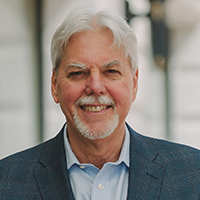
Do You Trust Your CEO, and Do They Trust You?
 If there’s one quality that I think all corporate boards must have to be effective, it’s trust. Does the board trust the company’s CEO, and does the CEO trust the board? If the answer to each question isn’t an unequivocal “yes,” then I would submit that your bank’s governance culture is impaired, and that could have a significant impact on your bank’s financial performance.
If there’s one quality that I think all corporate boards must have to be effective, it’s trust. Does the board trust the company’s CEO, and does the CEO trust the board? If the answer to each question isn’t an unequivocal “yes,” then I would submit that your bank’s governance culture is impaired, and that could have a significant impact on your bank’s financial performance.
For the last couple of months I have been reporting the cover story for the second quarter issue of Bank Director magazine. I have been interviewing the CEOs, independent chairs and lead directors at some of the top performing U.S. banks to get a sense of how their governance process contributes to their success. A critical factor that I have come across again and again is the question of trust.
Let’s look at the issue from the perspectives of both parties. The CEO needs to know that the board supports him or her and has the CEO’s back without abdicating its responsibility to shareholders and the regulators to provide effective oversight. The CEO needs to be able to share their misgivings or seek advice without worrying that it will be perceived as a sign of weakness.
It is true, of course, that the CEOs work for the board even when they hold the title of chairman. And I think it’s fair to say that the attitude of the regulators has hardened since the financial crisis. They expect the board’s independent directors to be on top of the details, and to execute their authority. The days of the imperial bank CEO who ran a hand-picked board with complete indifference to good governance are basically over. But the kind of superior/subordinate social dynamic that might be acceptable in, say, middle management will most likely backfire in the boardroom. Most of the bank CEOs that I have met through the years were some variation of a Type A personality and probably wouldn’t function well in a rigid social hierarchy. There is a nuance here that’s not always easy to pull off: The board must be in charge, but at the same time be respectful and consultative in its dealings with the CEO.
While the CEO and the board’s independent directors are not peers—it’s hard to be someone’s peer when they have the power to fire you—I think the CEO/board relationship has to have the kind of equanimity that is more reflective of a partnership. Nothing is held back from a partner, and every issue is handled in a spirit of constructive engagement. CEOs need the confidence that the board stands behind them, trusts their judgment, isn’t pursuing any hidden agendas and wants to be a helpful resource.
And what does the board require of the CEO? Again, I would say trust-—but trust that has been built on a foundation of transparency. At the top performing banks I have been talking to, the CEO and his or her management team routinely share information—both good and bad—with their directors. The boards have a complete picture of their bank’s financial performance, and the CEOs do not engage in selective non-disclosure of information that might cast their performance in a bad light. The independent directors must be confident that no material information is being held back, and that all of their questions will be answered honestly.
In my view, a healthy board governance process and culture is built on an attitude of trust and mutual respect. The board trusts that it’s getting all of the information it needs to fulfill its fiduciary responsibilities, and the CEO trusts the board to deal with them in an honest and supportive way.
One CEO I interviewed put it to me this way. “Sometimes I feel like my head is on a dartboard,” he says. “There are all kinds of different groups out there and things going on in the marketplace where you feel like you’re exposed. So knowing that the board understands those risks and is behind me and supportive of me is extremely important.”



